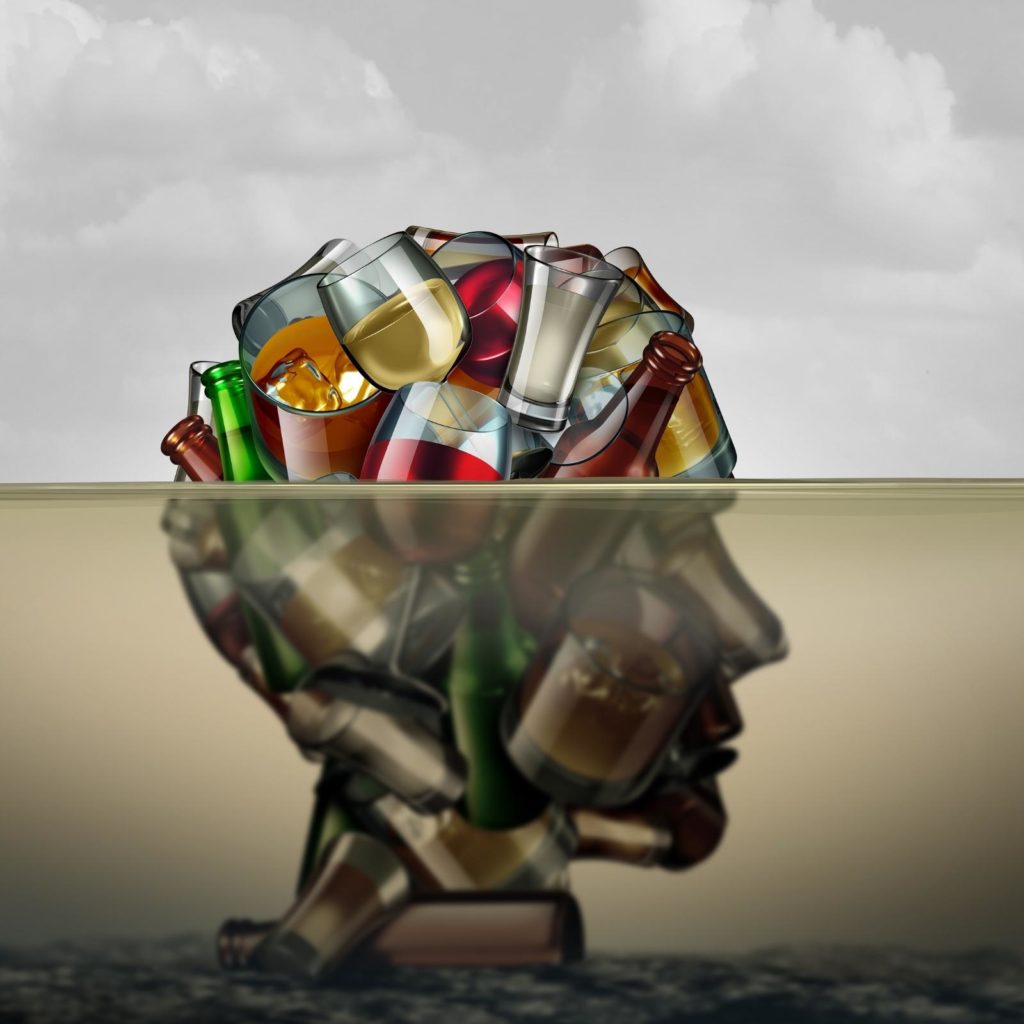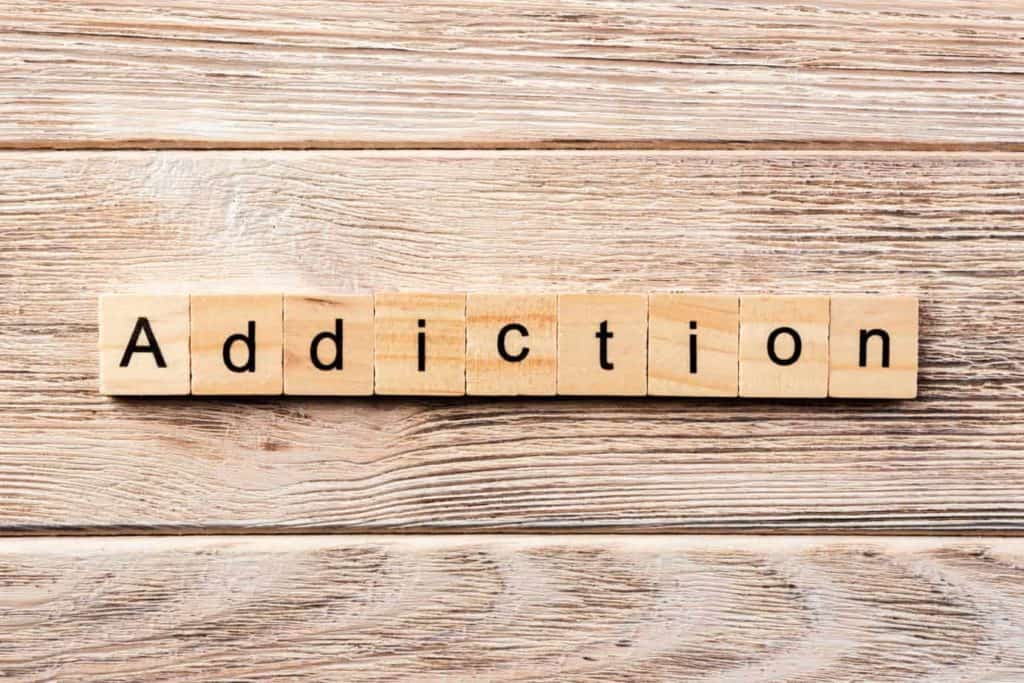Understanding Comorbidity
Comorbidity or the co-occurrence of mental disorders and substance use disorders is common. The prevalence of comorbidity in the community and the complex interactions between the two sets of diseases should raise doubts about how we continue to deal with each entity separately. Other names for comorbid conditions include co-occurring conditions, coexisting conditions, and less commonly, multiple chronic conditions or multimorbidity. According to the Substance Abuse and Mental Health Services Administration (SAMHSA) [1], nearly 9.2 million adults in the United States have a comorbidity that includes a mental illness and substance abuse or two types of mental illness, such as anxiety and depression.
A substance use disorder can involve drug or alcohol addiction (or both). Comorbid mental illness and substance use disorder is also called a dual diagnosis and is less frequently referred to as MICD (mental illness/chemical dependency). The National Institute on Drug Abuse (NIDA) reports that nearly half of those with mental illness or substance abuse have the other. People with a substance use disorder (SUD) are more likely to have a mental illness, and people with a mental illness are more likely to have a substance use disorder. One primary reason for this is that some symptoms of mental illness can cause people to self-medicate with alcohol or drugs.
Skip to:
- Why Mental Health Disorders Co-Exist With Substance Use
- Why Addiction and Mental Illness Co-Occur
- Other Common Comorbidities with Substance Abuse
- Co-occurring Substance Use Disorder and Physical Comorbidities
- Depression and Substance Abuse Comorbidity
- Bipolar Substance Abuse Comorbidity
- Schizophrenia and Substance Abuse Comorbidity
- Treatment When Comorbidity Exists
- Co-occurring Disorders Treatment
Learn More:
- Understanding Clinical Depression
- Alcohol and Depression Strong Co-occurring Connection
- Bipolar And Addiction
- Drug Addiction And Depression
- Cocaine and Depression
- Benzos and Depression
- Rehab for Depression
- Hyperbaric Oxygen Therapy for Depression
- Neurofeedback Therapy for Depression
- Can You Go To Rehab for Depression?
- Severe Depression Treatment
- Depression Hospital
- Women’s Depression Treatment Center
- Depression Treatment
- Residential Treatment for Depression
- Inpatient Depression Treatment

Get Your Life Back
Find Hope & Recovery. Get Safe Comfortable Detox, Addiction Rehab & Dual Diagnosis High-Quality Care.
Hotline(844) 597-1011Why Mental Health Disorders Co-Exist With Substance Use
Mental health disorders and substance use disorders sometimes occur together. This is because:
- Certain illegal drugs can cause people with an addiction to experience one or more symptoms of a mental health problem.
- Mental health conditions can sometimes lead to drug use, as some individuals with mental health problems may misuse these substances as a form of self-medication.
- Mental health disorders and substance use disorders share some underlying causes, including genetic vulnerabilities, changes in brain composition, and early exposure to stress or trauma.

Substance use problems occur more frequently with certain mental health problems, including:
- Depression
- Anxiety Disorders
- Schizophrenia
- Personality Disorders
Even though there is a high comorbidity between substance abuse and mental health disorder, it does not mean that one caused the other—even if one condition appeared first. Instead, there are still a number of conditions that need to be considered. For example:
- Substance abuse can cause individuals to experience one or more symptoms of another mental illness. For example, there is an increased risk of substance-induced psychosis in some marijuana users.
- Mental health disorders can lead to alcohol or drug abuse because some individuals use substances to self-medicate. For instance, the nicotine in tobacco products sometimes lessens certain symptoms of schizophrenia and may improve cognition.
As mentioned above, some evidence also shows that addictions and mental illnesses are caused by genetic influences, underlying brain deficits, and/or exposure to trauma early in life. For example, it is estimated that 40 to 60 percent of a person’s vulnerability to addiction can be attributed to genetics. Several regions of the human genome have been linked to an increased risk for substance abuse and mental illness.
Get Help. Get Better. Get Your Life Back.
Searching for Accredited Drug and Alcohol Rehab Centers Near You?
Even if you have failed previously and relapsed, or are in the middle of a difficult crisis, we stand ready to support you. Our trusted behavioral health specialists will not give up on you. When you feel ready or just want someone to speak to about therapy alternatives to change your life call us. Even if we cannot assist you, we will lead you to wherever you can get support. There is no obligation. Call our hotline today.
(844) 597-1011Why Addiction and Mental Illness Co-Occur
Mood disorders, including bipolar disorders and depression, are the most common psychiatric comorbidities among people struggling with alcohol or drug addiction Treating patients’ co-occurring mood disorders may reduce their substance craving and taking and enhance their overall outcomes. Treatment should maximize the use of psychotherapeutic interventions and give first consideration to medications proven effective in the context of co-occurring substance abuse. Several theories have been proposed to explain the high co-occurrence of drug and alcohol addiction and mood disorders. In general, they fall into three categories
Disorder Fostering Disorder
One theory proposes that the pathological effects of a mood disorder or SUD may increase the risk for the other. For example, mood disorders may motivate individuals to resort to drugs and alcohol to cope with their negative affective states.
The self-medication explanation implies that individuals will tend to select drugs that alleviate their specific psychiatric symptoms. For example, some psychologists suggest that people with uncontrollable feelings of rage and aggression may choose opiates for these drugs’ mellowing effects, while people who are depressed may take cocaine because it exhilarates and energizes them.

Overlapping Neurobiological Pathways
Another proposed explanation for the high comorbidity rate of mood disorders with SUDs involves “kindling.” The term, usually associated with epilepsy, refers to the concept that repeated disruptions, such as occur during seizures, sensitize brain cells. The more sensitized the neurons become, the less it takes to disrupt them, which is why in untreated epilepsy, seizures tend to become more frequent and severe over time.
Both alcohol and cocaine sensitize neurons, and this increased sensitivity may contribute to the typical progression from occasional to increasingly frequent and intense use of these substances. Mood disorders often follow a similar course of increasingly distressing symptomatic episodes separated by progressively shorter periods of remission, suggesting that they too may intensify via a kindling process.
Underlying Genetic Factors
Research has shown that both substance abuse and mood disorders have genetic risk factors. In addition, families with substance abusers are more likely than those without to also have members with mood disorders, and vice versa. These facts raise the possibility that some gene variants may contribute to the risk for both types of illness. A person’s genes might:
- Make him or her vulnerable to mood disorders, which he or she might then try to self-medicate, as discussed above;
- Shape the brain so that it responds to initial drug exposures in ways that promote chronic substance abuse, with the drugs then wreaking changes that lead to mood disorders;
- Cause the brain to develop in a way that directly fosters both types of disorder, for example through vulnerability to neuronal sensitization and kindling.
First-class Facilities & Amenities
World-class High-Quality Addiction & Mental Health Rehabilitation Treatment
Rehab Centers TourRenowned Addiction Centers. Serene Private Facilities. Inpatient rehab programs vary.
Addiction Helpline(844) 597-1011Proven recovery success experience, backed by a Team w/ History of:
15+
Years of Unified Experience
100s
5-Star Reviews Across Our Centers
10K
Recovery Success Stories Across Our Network
- Low Patient to Therapist Ratio
- Onsite Medical Detox Center
- Comprehensive Dual-Diagnosis Treatment
- Complimentary Family & Alumni Programs
- Coaching, Recovery & Personal Development Events
Other Common Comorbidities with Substance Abuse
Polysubstance Abuse
Polysubstance use is common, and many people develop multiple comorbid substance use disorders. For example, among people with a heroin use disorder over 66 percent are dependent on nicotine, nearly 25 percent have an alcohol use disorder, and over 20 percent have a cocaine use disorder [3].
Among people with a cocaine use disorder nearly 60 percent have an alcohol use disorder, approximately 48 percent are dependent on nicotine, and over 21 percent have a marijuana use disorder. As with single-substance use disorders, diagnosing and treating comorbid substance use disorders and mental illness are complex. The use of multiple substances can further complicate diagnosis and treatment.
Integrated treatment for comorbid drug use disorder and mental illness has been found to be consistently superior compared to separate treatment of each diagnosis. Integrated treatment of co-occurring disorders often involves using cognitive behavioral therapy strategies to boost interpersonal and coping skills and using approaches that support motivation and functional recovery.
Co-occurring Substance Use Disorder and Physical Comorbidities
People with substance use disorders also often experience comorbid chronic physical health conditions, including chronic pain, cancer, and heart disease. The use of various substances—including alcohol, heroin, prescription stimulants, methamphetamine, and cocaine—is independently associated with an increased risk for cardiovascular and heart disease.
Chronic Pain
Chronic pain is a physical problem that has a complex relationship with substance use disorders, particularly opioid misuse and addiction. An estimated 10 percent of chronic pain patients misuse prescription opioids. Chronic pain and associated emotional distress are thought to dysregulate the brain’s stress and reward circuitry, increasing the risk for opioid use disorder.
Tobacco Use
One of the largest drivers of physical health comorbidities is cigarette smoking. It is linked to many major health conditions and remains the leading preventable cause of premature disease and death in the United States. For example, the majority of lung cancer and approximately one-third of all cancer deaths are attributable to smoking.
Infectious Disease Transmission
Substance use also increases the risk of infectious disease transmission, including HIV and the hepatitis C virus (HCV). This increased risk is related to injection drug use and increased risky sexual behaviors associated with drug use. The intoxicating effects of many drugs can alter judgment and inhibition, and lead people to engage in impulsive and unsafe behaviors. Additionally, people who are addicted to drugs may engage in risky sexual behaviors to obtain drugs or money to buy them.
World-class, Accredited, 5-Star Reviewed, Effective Addiction & Mental Health Programs. Complete Behavioral Health Inpatient Rehab, Detox plus Co-occuring Disorders Therapy.
CALL(844) 597-1011End the Addiction Pain. End the Emotional Rollercoaster. Get Your Life Back. Start Drug, Alcohol & Dual Diagnosis Mental Health Treatment Now. Get Free No-obligation Guidance by Substance Abuse Specialists Who Understand Addiction & Mental Health Recovery & Know How to Help.
Depression and Substance Abuse Comorbidity
Major depressive disorder (MDD) is often accompanied by substance abuse or dependence. The mental health field has long debated whether these conditions are independently occurring disorders or are overlapping illnesses, intertwined by common etiologic and vulnerability factors. The initial presentation of depression can be obscured by the overriding symptoms or side effects of a substance use disorder (SUD).
In the general population, the prevalence of a current substance use disorder in persons with Major depressive disorder (MDD) ranges from 8.5 to 21.4%, with a lifetime prevalence of comorbid SUDs ranging from 27 to 40% [4]. Co-occurring depression has an adverse effect on the course of SUDs. Current depression predicted poorer treatment response and higher rates of relapse.
People who suffer from depression can experience severe sadness that lasts weeks or even months at a time. It’s common for those battling mental illness to also struggle with substance abuse. Sometimes it can be difficult to determine which condition came first. People faced with prolonged periods of profound sadness may reach for drugs or alcohol to ease the pain, feelings, and other symptoms.
However, substance use can actually make depression symptoms more severe. Clinical depression alone increases the risk of accidental injury, suicide, and other forms of self-harm. Add in drugs or alcohol, and the threats to the person’s mental and physical health can be extreme.
Borderline Personality Disorder and Substance Abuse Consequences of Comorbidity
For decades, clinicians and researchers have recognized that borderline personality disorder (BPD) and substance use disorders (SUDs) are often diagnosed within the same person. Borderline personality disorder (BPD), a severe personality disorder that develops by early adulthood, is characterized by emotion dysregulation, impulsive acts, disturbed interpersonal relationships, and suicidal and self-harm behaviors. BPD is the most commonly diagnosed personality disorder in both inpatient and outpatient settings.
Disorders with the highest rates of co-occurrence with BPD are mood, anxiety, substance use, and non-BPD personality disorders. Borderline personality disorder (BPD) affects 2.7% of adults. About 78% of adults with BPD also develop a substance-related disorder or addiction at some time in their lives [5]. These persons are more impulsive and clinically less stable than BPD patients without substance dependency. They display suicidal behavior to a greater extent, drop out of treatment more often, and have shorter abstinence phases. The combination of borderline personality disorder with addiction requires a special therapeutic approach.
Patients with borderline personality disorder and comorbid addiction should be treated as early as possible for both conditions. These patients need qualified expert counseling in choosing a suitable type of psychotherapy. Data on the efficacy of psychological therapies are somewhat more robust. Dialectical Behavior Therapy for Substance Use Disorders (DBT-SUD)—DTB-SUD is a behavioral therapy that, because of its transparency and specifically developed educational concept, is easier to learn than any other method currently available for this patient. It takes a solution-focused approach and teaches these patients to assume personal responsibility.

Bipolar Substance Abuse Comorbidity
Bipolar disorder (BD) is a common, severe, and cyclic mental illness that presents with marked and unpredictable changes in mood and activity. BD is a risk factor for addictions, both behavioral, such as gambling, and substance use disorders.
Besides a strong association between alcohol and nicotine dependence and bipolar disorder, the abuse of other drugs, such as cocaine, opiates, amphetamines, cannabis, and prescription medications is also an important health concern in people with bipolar disorder.
It is not yet clear why people with bipolar disorder are at higher risk of addictive disorders, but recent data suggest common neurobiological and genetic underpinnings and epigenetic alterations.
Overall, motives for consuming illicit drugs in individuals with BD do not differ from people with BD and primary SUD (SUD before the onset of BD). The most frequent reasons include improving mood, relieving tension, alleviating boredom, escaping from reality, achieving/maintaining euphoria, and increasing energy.
Substance use disorder in people with bipolar disorder is associated with a multitude of negative consequences, influencing the course and prognosis of BD. In general, psychiatric comorbidity and especially drug abuse in BD is associated with a higher severity, expressed as more relapses.
PTSD and Substance Abuse Comorbidity
Posttraumatic stress disorder (PTSD) commonly co-occurs with substance use disorder (SUD) and can be challenging to treat. Post-traumatic stress disorder (PTSD) is a mental health condition characterized by intense, disturbing thoughts and feelings that may develop after someone has experienced or witnessed a life-threatening event, serious injury, or sexual assault.
These types of events can overwhelm a person’s ability to cope, and examples include witnessing the death or injury of a loved one, military combat, a severe motor vehicle accident, and being physically or sexually assaulted.
About 26–52% of people diagnosed with a lifetime prevalence of PTSD also meet the criteria for diagnosis of a substance use disorder. When an individual is diagnosed with a substance use disorder and a mental health disorder, this is called having a co-occurring disorder.
Experiencing trauma, as well as reliving it, causes a release of chemicals in the brain that are related to the acute stress that you are under. Sometimes, people turn to substances like alcohol, marijuana, or other drugs to help relieve this stress or to help them sleep, relax, or forget about the trauma.
Over time, recurrent substance use contributes to changes in the brain and behavior and may lead to drug or alcohol dependence and addiction. Relying increasingly on psychoactive substances to alter your mood and cope with your PTSD symptoms can move you closer to developing a substance use disorder.
Schizophrenia and Substance Abuse Comorbidity
The rate of comorbid substance use disorder in patients with schizophrenia is 3 times higher than that in the general population. Men with schizophrenia appear to be particularly vulnerable to substance use disorders. Substances commonly abused in patients with schizophrenia include alcohol, cannabis, and cocaine. Although the basis of comorbidity is unclear, a number of theories have been proposed, including the possibility of a deficiency in the dopamine-mediated mesocorticolimbic brain reward circuit.
The high frequency of co-occurring substance use disorder in schizophrenia is linked to an increased risk of illness and injury. Apart, from impaired cognitive functioning during intoxication, substance abuse is associated with poorer outcomes in psychosis and higher rates of presentation to inpatient and emergency services. Since both disorders have been observed to be closely interdependent, a particular treatment for schizophrenic patients with comorbidity of substance abuse is needed in order to provide more effective care.
Alcohol Abuse
Because alcohol is so readily available, it can become easier for people with schizophrenia to develop a dependence on it compared to illegal drugs. Roughly one-third of people with schizophrenia will develop alcohol use disorder at some point in their lives.
Cocaine Abuse
Schizophrenic patients with cocaine use disorder are at increased risk of suicide, low-treatment compliance, and hospitalization. They are also more likely to come from low-income communities and have had trauma earlier in life.
Cannabis Abuse
Cannabis use has also been shown to potentially worsen or accelerate the development of psychotic symptoms in certain groups. One study found that 53% of people experiencing their first psychotic episode also qualified for cannabis use disorder.
Treatment When Comorbidity Exists
How are these comorbid conditions diagnosed and treated? The high rate of comorbidity between substance use disorders and other mental illnesses calls for a comprehensive approach that identifies and evaluates both. Accordingly, anyone seeking help for either substance use, misuse, addiction, or another mental disorder should be evaluated for both and treated accordingly.
Several behavioral therapies have shown promise for treating comorbid conditions. These approaches can be tailored to patients according to age, the specific drug misused, and other factors. They can be used alone or in combination with medications. Some effective behavioral therapies for treating comorbid conditions include:
- Cognitive-behavioral therapy (CBT) helps to change harmful beliefs and behaviors.
- Dialectical behavioral therapy (DBT) was designed specifically to reduce self-harm behaviors including suicide attempts, thoughts, or urges; cutting; and drug use.
- Assertive community treatment (ACT) emphasizes outreach to the community and an individualized approach to treatment.
- Therapeutic communities (TC) are a common form of long-term residential treatment that focuses on the “resocialization” of the person.
- Contingency management (CM) gives vouchers or rewards to people who practice healthy behaviors.
Effective medications exist to treat opioid, alcohol, and nicotine addiction and alleviate the symptoms of many other mental disorders, yet most have not been well studied in comorbid populations. Some medications may benefit multiple problems. For example, bupropion is approved for treating both depression (Wellbutrin®) and nicotine dependence (Zyban). More research is needed, however, to better understand how these medications work, particularly when combined in patients with comorbidities.

Co-occurring Disorders Treatment
There is a strong link between depression and substance abuse comorbidity. Individuals who struggle with mood disorders like depression and anxiety are more susceptible to developing an addiction to drugs or alcohol, often to self-medicate symptoms of their underlying mental health condition. These co-occurring disorders can make each other worse without proper dual diagnostic treatment.
To determine the most effective ways to treat depression and substance abuse comorbidity, getting an accurate assessment of all the symptoms is crucial. When a mental health professional has evaluated the symptoms, it may be determined that another form of mental condition is present and needs a particular treatment.
Detox Treatment
The first step in treatment is medical detox. It will help you navigate the complicated withdrawal process but doesn’t address patterns of thought and behavior contributing to heroin abuse. Various treatment approaches and settings can help provide the ongoing support necessary to maintain long-term sobriety after you complete detox.
Cravings are very common during detox and can be challenging to overcome. This often leads to relapse. Constant medical care provided during inpatient treatment helps prevent relapse. Clinicians can provide necessary medication and medical expertise to lessen cravings and the emotional effects of alcohol withdrawals.
Psychotherapy
Several different modalities of psychotherapy have been used in the treatment of depression, including:
- Cognitive Behavioral Therapy (CBT) – is an effective treatment that involves changing both the patterns of negative thoughts and the behavioral routines which are affecting the daily life of the depressed person for various forms of depression.
- Dialectical Behavior Therapy – is a comprehensive mental health and substance abuse treatment program whose ultimate goal is to aid patients in their efforts to build a life worth living. The main goal of DBT is to help a person develop what is referred to as a “clear mind.”
- Person-Centered Therapy – is a strategy that allows and encourages clients to understand and resolve their concerns in a safe, supportive environment.
Dual Diagnosis Treatment
Substance abuse and mental health disorders often co-occur. In many cases, traumatic experiences can result in a mental health disorder and substance abuse. Dual diagnosis programs treat both of these issues together. The best approach for the treatment of dual diagnosis is an integrated system. This strategy treats both the substance abuse problem and the mental disorder simultaneously. Regardless of which diagnosis (mental health or substance abuse problem) came first, long-term recovery will depend mainly on the treatment for both disorders done by the same team or provider.
Medication-Assisted Treatments
Medication-Assisted Treatments (MAT) for substance use and mental health disorders are commonly used in conjunction with one another. This includes the use of medications and other medical procedures. During your rehab, the staff from your treatment facility will help you identify what caused your addiction and teach you skills that will help you change your behavior patterns and challenge the negative thoughts that led to your addiction. Sometimes, the pressures and problems in your life lead you to rely on substances to help you forget about them momentarily.
If you or your loved one suffers from alcohol or drug addictions, help is just a phone call away. Professional addiction treatment is necessary for fast and effective recovery. Contact us today at We Level Up treatment facility. We provide utmost care with doctors and medical staff available 24/7 for life-changing and lasting recovery. We offer an enhanced opportunity to return to a fulfilling and productive life.

Experience Transformative Recovery at We Level Up Treatment Centers.
See our authentic success stories. Get inspired. Get the help you deserve.
Start a New Life
Begin with a free call to an addiction & behavioral health treatment advisor. Learn more about our dual-diagnosis programs. The We Level Up Treatment Center Network delivers recovery programs that vary by each treatment facility. Call to learn more.
- Personalized Care
- Caring Accountable Staff
- World-class Amenities
- Licensed & Accredited
- Renowned w/ 100s 5-Star Reviews
We’ll Call You
Sources
[1] NIDA – https://nida.nih.gov/publications/research-reports/common-comorbidities-substance-use-disorders/part-1-connection-between-substance-use-disorders-mental-illness
[2] NIDA – https://www.ncbi.nlm.nih.gov/books/NBK571451/
[3] NIDA – https://pubmed.ncbi.nlm.nih.gov/18281835/
[4] BPD – https://pubmed.ncbi.nlm.nih.gov/24791755/
[5] Dual Diagnosis – We Level Up NJ


